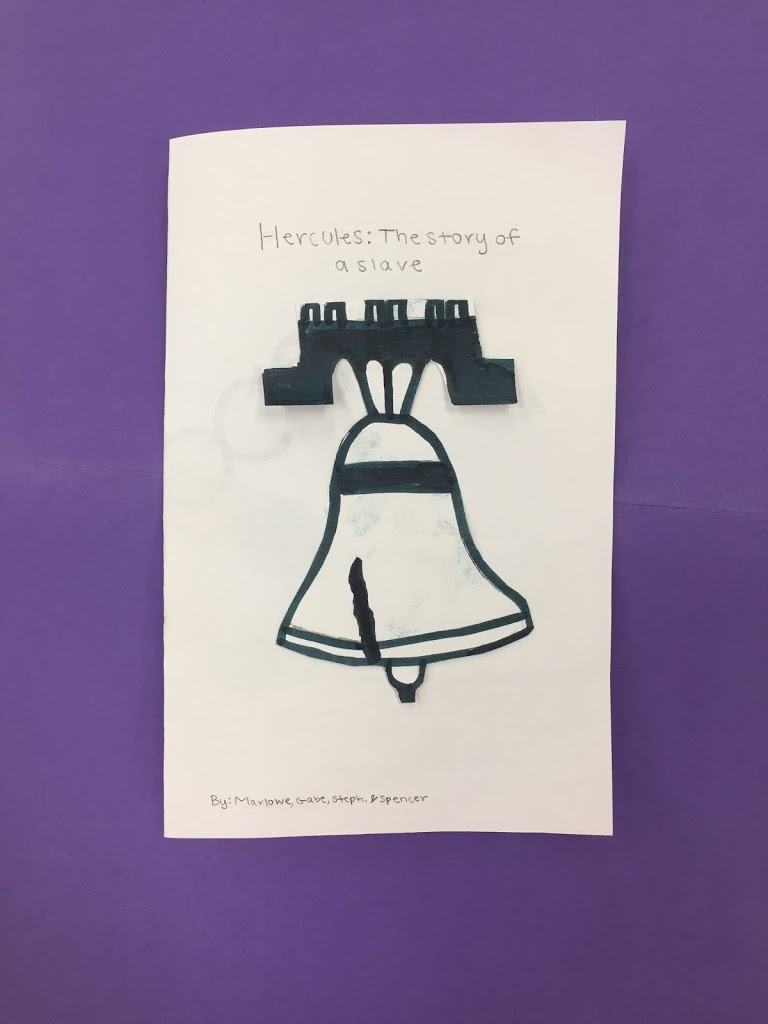It has been quite a week in my history class and I have so much to share. The students in my class worked on completing their study of Hercules and the book A Birthday Cake for George Washington. The final piece of the unit was to study the real Hercules. I wanted students to find out who he really was. The only accounts of Hercules we have are written using sources who relied on the Washingtons’ descriptions of Hercules and his personality and work as well as oral stories about him from other enslaved people who knew him or encountered him at some point in their lives. I thought the best place to find a summary version of his real life would be from Mount Vernon, so I asked them to do this reading and then answer the following questions during some individual work time:
- What was the name of George Washington’s plantation where Hercules lived?
- Where did Washington bring Hercules and why?
- What is a tithable?
- What “special privileges” did Hercules have and how did he “benefit”?
- What are the two reasons listed for Hercules’ escape?
- How did Washington react to Hercules’ escape?
- Why would Hercules want to run away given his status? How does this relate to “A Birthday Cake for George Washington”?
The best part of this assignment was the discussion afterwards about how Hercules’ eventual escape related to the book we’d been talking about. Students brought up the dichotomy between the story in the book, the relationship it portrays between Washington and Hercules, and the happy illustrations with Hercules’ actual story of being in Philadelphia for only a short while and then having Washington send him back to Mt. Vernon so he couldn’t attain his freedom (In Philadelphia, enslaved people there for more than 6 months would become free). Students talked about the cruelty of Washington for finding a loophole in the law, and how slaves didn’t necessarily have to be physically hurt to be abused. Then this student-led conversation went to what they thought would be appropriate for a child to know about slavery. It was interesting to hear their arguments, as some students thought that children shouldn’t know about slavery at all because they deemed the topic to horrifying for children, while others said that if children are going to know the history of the US, they need to know the whole history in age-appropriate language. One of my students, who happens to be a student of color, brought up that if children don’t learn about slavery, they would not be learning about an entire portion of the population of the US, and said that isn’t fair. I agree with her.
No matter the student’s feelings on the topic, the final assessment for this unit was for them to write what they felt would be age-appropriate books about Hercules’ life. I asked them to tell children Hercules’ story and address slavery in a way they thought children ages 6-8 should hear, as that was the age group intended for A Birthday Cake for George Washington. Below are some of their products, and in them, they told the truth about who Hercules was, what he was reduced to be, and how slavery made the enslaved feel.

 |
| “Hercules, George Washington’s chef, was one of the most celebrated slaves in Philadelphia, but he had one problem: his slim chance at freedom was about to be taken away.” |
 |
| “For a slave, Hercules was treaded well, but as a person [sic] he was not.” |
 |
| These students thought this was a more appropriate title for a book about Hercules. |





